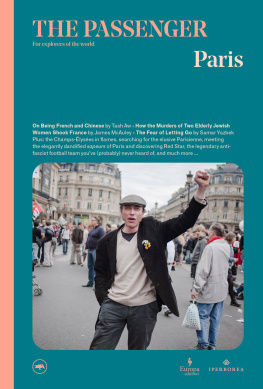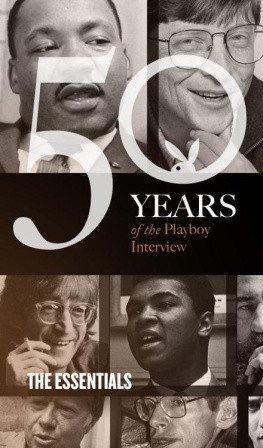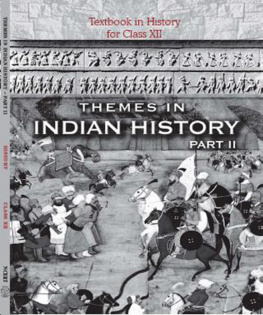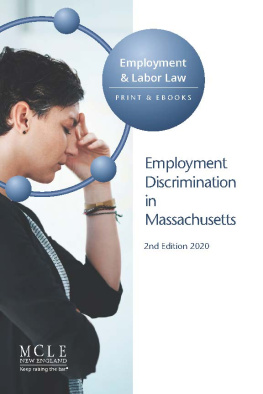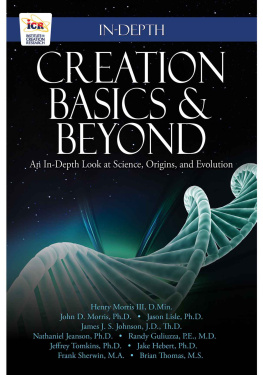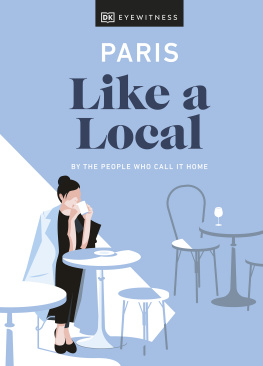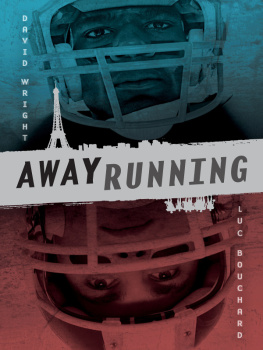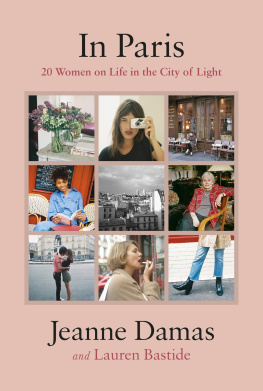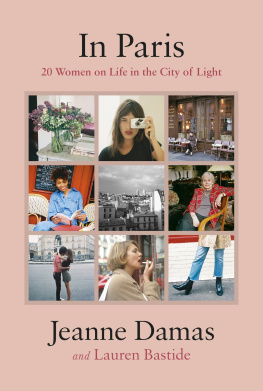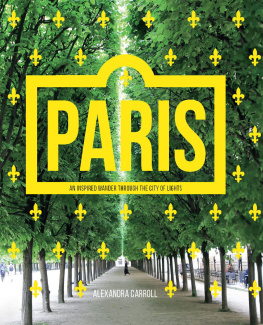Paris
Nothing in Paris is what it seems, starting with its size: it is a small city if you count only the nucleus of twenty arrondissements with just over two million residents, but it is Europes second largest if you include the whole le-de-France region, which really you should. This separation of the centre and the banlieueson its outskirts mirrors the even wider gulf between the capital and the rest of the country, which has come about through centuries of rigid centralism. The strength of this gravitational force means that almost a third of the nations GDP and a quarter of its jobs are centred on the capital, but an opposing force seems to push new arrivals away, both those from France itself and from elsewhere, relegating them to the margins, whether geographically and socially in a run-down banlieueor more subtly for those who might live in the centre but are seen by Parisians as foreign bodies, provincials. The glare of the City of Light can be blinding, even for tourists: when faced with the reality of a city so different from the cherished image portrayed in films and books, some even develop a kind of culture shock known as Paris Syndrome. But the shadows seem to be lengthening, too: the Bataclan terrorist attacks, the protests of the gilets jaunes, unrest in the banlieues, Notre-Dame in flames, record heatwaves, unaffordable housing and the Coronavirus pandemic. This is not just a series of unfortunate events, these are phenomena from overcrowding to climate change, from immigration to the repercussions of globalisation and geopolitics that all the worlds major cities must face. Despite these challenges, the current mood in Paris remains one of renewal rather than defeat; this we can see in a new approach to environmentalism and urban planning the dream of a city made up of numerous little centres, ultimately all interconnected a younger generation of chefs fighting against the Michelin-star class system, the children of immigrants protesting on the streets for the right to be accepted as French and women casting off the stereotypes created for them by the world of fashion. Is there anyone who genuinely believes they can teach Parisians anything about staging a revolt?

Contents
The photographs in this issue were taken by the photojournalist and documentary photographer/video-maker Cha Gonzalez. She was born in Paris but spent her teenage years in Beirut, returning to the French capital to study photography and video-making at the cole Nationale Suprieure des Arts Dcoratifs. One strand of her work looks at techno parties as spaces where a stark yet tender vision of intimacy, beauty and peoples ability to lose themselves is revealed through trance music and a strong interpersonal bond. Her works have been shown in various collective exhibitions, including Cest Beyrouthat the Institut des Cultures dIslam in Paris in 2019 and Nicphore, the Clermont-Ferrand biennial, in 2020. Her photographs were included in Le Liban na pas dge, a book marking the centenary of the state of Lebanon. She has worked for publications including The Wall Street Journal, Elle, Libration, Le Mondeand Causette.

The eastern faade of the Pompidou Centre.
The Beaubourg Effects
THIBAUT DE RUYTER
Translated by Daniel Tunnard
THIBAUT DE RUYTER is a French-German architect, curator and art critic, who has lived and worked in Berlin since 2001. He has written for magazines such as LArchitecture daujourdhui

